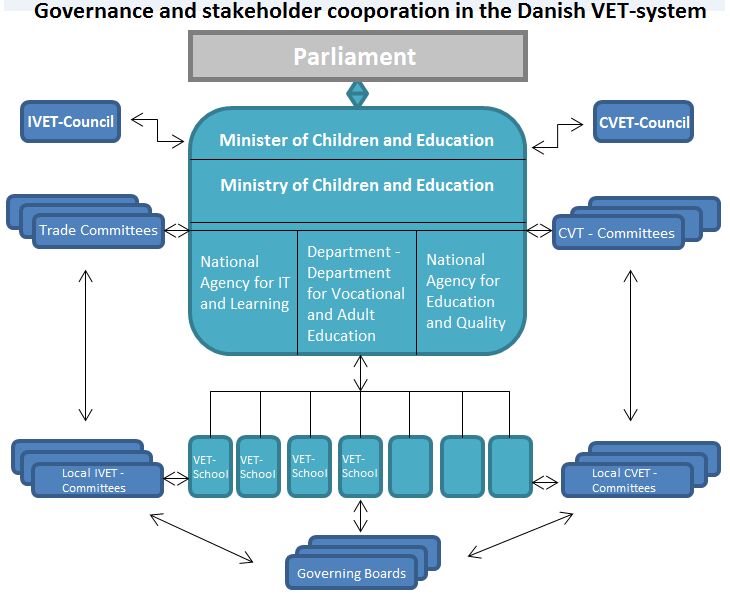Stakeholder Cooperation in Denmark
The Danish VET system is based on tri-partite governance between the state, employers and employees including legal Framework, national qualifications standards, quality assurance and financing. The social partners play an institutionalised role in the curriculum development, the dual organisation of VET and the monitoring of VET at the national, sectoral and the institutional level.
The Danish VET-system is characterised by a high degree of involvement of social partners and stakeholder cooperation. They play a central part in the management and development of the VET-system in Denmark. Their role is central to ensuring that the training content always corresponds with the labour market requirements. Secondly, the social partners play an important role in defining the learning objectives of the VET programme. In addition, the social partners have traditionally, also during financial crises, played a central role in ensuring a smooth transition from education to employment – partly due to the fact that the VET programmes leads to nationally recognised qualifications.

Stakeholder cooperation is organised at three different levels represented by the Advisory Council on the Initial Vocational Education and Training, the national trade committees and at local level in governing boards at VET schools and in local training committees:
At central political level the governance is formalised in the Advisory Council for Initial Vocational Education and Training (REU) composed of all stakeholders in VET including representatives from employers’ confederations and trade unions, regions, municipalities, VET college leader organisations, trade committees and teacher- and student organisations. Cooperation between social partners takes place in trade committees, who have the responsibility for the different main programmes in VET. At local level, the social partners play a key role in governing boards at the VET schools and in local training committees securing close cooperation between the stakeholders in the local community based on the needs of the local enterprises.
- Byggeriets Uddannelser: Advisory board for Education and Training for Building and Construction Industry. In-depth information on the tasks and activities of a trade committee taken the example of the trade committee for the construction sector.
- Byggeriets Uddannelser: General Information.
- Denmark- Fact Sheet Stakeholder Involvement